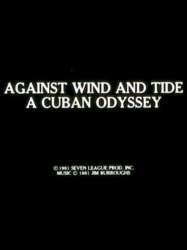The Defector: Escape from North Korea est un film de genre Documentaire
The Defector: Escape from North Korea (2012)

Si vous aimez ce film, faites-le savoir !
Genres Documentaire
Note71%










The Defector: Escape from North Korea is a 2012 documentary film about North Korean defectors, directed by Korean-Canadian filmmaker Ann Shin. The film premiered at the Hot Docs Canadian International Documentary Festival and had its broadcast premiere on TVOntario on June 26. The film's release was accompanied by The Defector Interactive, an interactive documentary that uses a videogame-like approach to let the user find out about life in and escape from North Korea.
^ "The story of North Koreans who defect to China and beyond". The Current (Canadian Broadcasting Corporation). 26 April 2013. Retrieved 27 June 2013.
^ Seagal, Alina (27 June 2013). "Canadian filmmaker teams up with smuggler to help North Korean defectors". Yahoo! News. Retrieved 27 June 2013.
^ Barnard, Linda (26 April 2013). "Hot Docs: The Defector tracks a harrowing escape from North Korea". Toronto Star. Retrieved 27 June 2013.
Commentaires
Postez un commentaire :
Suggestions de films similaires à The Defector: Escape from North Korea
Il y a 8965 ayant les mêmes genres cinématographiques, 3242 films qui ont les mêmes thèmes (dont 52 films qui ont les mêmes 3 thèmes que The Defector: Escape from North Korea), pour avoir au final 70 suggestions de films similaires.Si vous avez aimé The Defector: Escape from North Korea, vous aimerez sûrement les films similaires suivants :

Parcours de réfugiés (2009)
, 52minutesRéalisé par Ali Benjelloun
Origine Maroc
Genres Documentaire
Thèmes L'immigration, Documentaire sur le droit, Documentaire sur une personnalité
Aux portes de l'Europe, le Maroc voit arriver de plus en plus d'immigrés dont le but est souvent de se rendre vers les pays du Nord. Mais d'autres, moins nombreux, arrivent au Maroc espérant y trouver refuge. Originaires de Côte d'Ivoire, du Togo, de la République démocratique du Congo, de la Palestine ou encore d'Irak, ils ont fui leur pays d'origine. Ils sont environ mille à posséder ainsi une carte de réfugié politique, délivrée par le Haut commissariat des Nations unies pour les réfugiés (UNHCR). Mais posséder cette carte ne facilite guère la vie sur le territoire marocain.
 , 1h16
, 1h16Origine Etats-Unis
Genres Documentaire
Thèmes Afrique post-coloniale, L'immigration, Documentaire sur le droit, Documentaire sur la guerre, Documentaire historique, Documentaire sur une personnalité
Note71%





In 2006, producer/director Lisa F. Jackson travelled alone to the war zones of the Democratic Republic of the Congo documenting the plight of women and girls impacted by the conflicts there. She was "afforded privileged access" to the realities of life in Congo, and found "examples of resiliency, resistance, courage and grace". In a 2008 interview with NPR, Jackson said "I knew going to eastern Congo as a white woman alone in the bush with a video camera that I might as well have landed from a spaceship." Jackson had been a victim of gang rape thirty years earlier, and shared this experience with the survivors she interviewed. Much of the film features these women recounting their stories, which have left them "traumatised and isolated - shunned by society and their families, and suffering life-long health effects, including HIV." Context and background are discussed in interviews with doctors, politicians, peacekeepers, activists and priests. Jackson visits a clinic devoted to treating women with traumatic injury due to sexual violence, particularly cases of vesicovaginal and rectovaginal fistula. In addition, Jackson went out into the bush to interview some of the perpetrators, soldiers who spoke without apparent conscience about the women they had raped, and their often bizarre justifications. "You really can say that there's a culture of impunity in the Congo, where none of these men will face arrest for what they've confessed to me on videotape," Jackson noted. The focus of the film, though, is the stories of the victims, "who just poured their hearts out to me with these stories, including over and over again, please take these stories to someone who will make a difference.
 , 1h
, 1hOrigine Etats-Unis
Genres Documentaire
Thèmes L'immigration, La mer, Transport, Documentaire sur le droit, Documentaire sur une personnalité
Note66%






Le Tibet : chant d'exil (1991)
, 57minutesOrigine Canada
Genres Documentaire
Thèmes Film sur un écrivain, L'immigration, Religion, Le Tibet, Documentaire sur le droit, Documentaire sur une personnalité, Documentaire sur la politique, Documentaire sur la religion, Politique, Bouddhisme
Note72%





 , 52minutes
, 52minutesOrigine Algerie
Genres Documentaire
Thèmes Afrique post-coloniale, L'immigration, Documentaire sur le droit, Documentaire sur la guerre, Documentaire historique, Documentaire sur une personnalité, Documentaire sur la politique, Politique
En 1939, la fin de la guerre civile espagnole oblige des milliers d’hommes, de femmes et d’enfants à fuir l’Espagne franquiste. En Algérie, l’administration française ouvre des camps pour les accueillir. 70 après, un jeune Algérien enquête sur ces camps. Malgré l’absence d’archives, les traces ont survécu à l’oubli collectif et transparaissent dans l’Algérie d’aujourd’hui.

Harga (2010)
, 27minutesOrigine France
Genres Documentaire
Thèmes L'immigration, Documentaire sur le droit, Documentaire sur une personnalité
Hichem rêvait de « harga » depuis tout petit. Un jour, il a pris la mer vers l'Europe, il a tenté le grand voyage interdit, sur un bateau de fortune avec 27 concitoyens, dont certains étaient des amis ; seul Hichem est revenu. D'autres Tunisiens racontent, de leur côté, pourquoi ils ont voulu ou voudraient quitter le pays : la misère, le chômage, l'impossibilité de se projeter dans l'avenir, l'impasse dans laquelle ils se trouvent.

Darfur Now (2007)
, 1h38Réalisé par Ted Braun
Origine Etats-Unis
Genres Documentaire, Policier
Thèmes Afrique post-coloniale, L'immigration, Documentaire sur le droit, Documentaire sur la guerre, Documentaire historique, Documentaire sur une personnalité, Documentaire sur la politique, Politique
Acteurs Don Cheadle, George Clooney, Arnold Schwarzenegger
Note66%






The Unreturned (2010)
, 1h15Genres Documentaire
Thèmes L'immigration, Documentaire sur le droit, Documentaire sur la guerre, Documentaire historique, Documentaire sur une personnalité, Politique
 , 2h2
, 2h2Origine Etats-Unis
Genres Guerre, Documentaire, Historique
Thèmes L'enfance, L'immigration, Le racisme, Religion, Documentaire sur la discrimination, Documentaire sur le droit, Documentaire sur la guerre, Documentaire historique, Documentaire sur une personnalité, Documentaire sur la religion, Politique, Religion juive, Documentaire sur la Seconde Guerre mondiale
Acteurs Judi Dench
Note76%





Quelques mois avant la Seconde Guerre mondiale, une extraordinaire opération de sauvetage a arraché 10 000 enfants et adolescents juifs au régime nazi. Rapatriés en Grande-Bretagne pour être adoptés, ils durent tisser de nouveaux liens familiaux, supporter les bombardements pour certains, aller libérer leurs propres parents restés en Allemagne. Ils ont tous d'inoubliables histoires à raconter dans ce documentaire.

De Nadie (2005)
, 1h22Genres Documentaire
Thèmes L'immigration, Documentaire sur le droit, Documentaire sur une personnalité
Note74%





 Connexion
Connexion